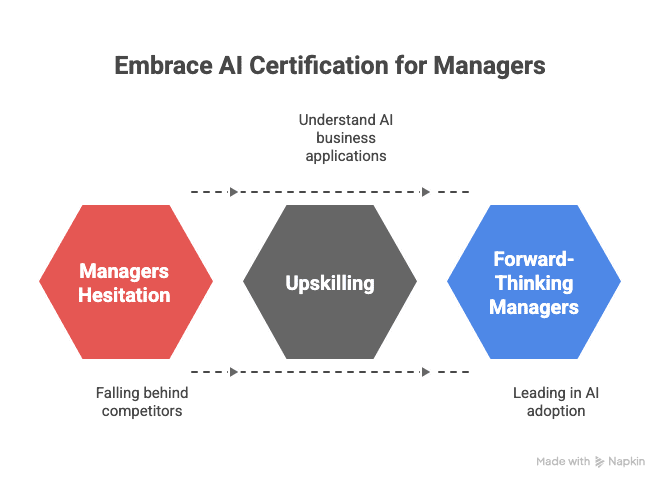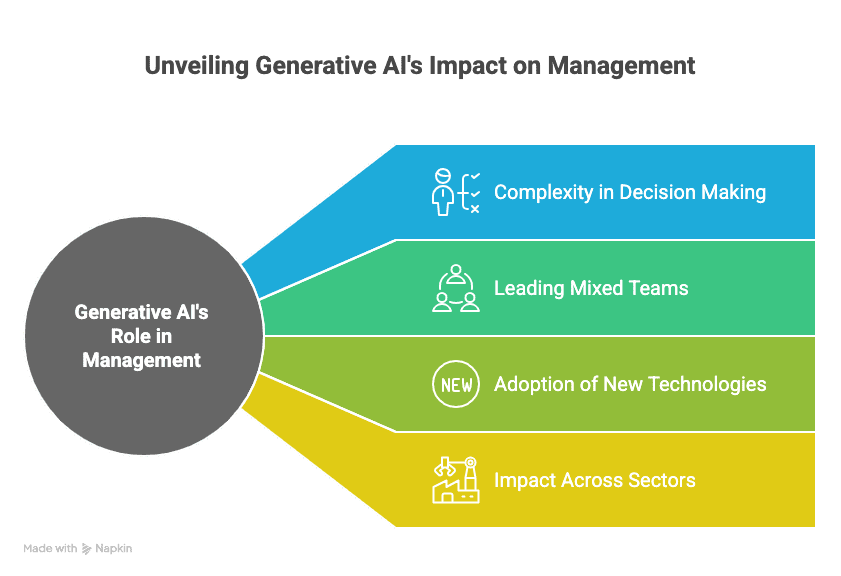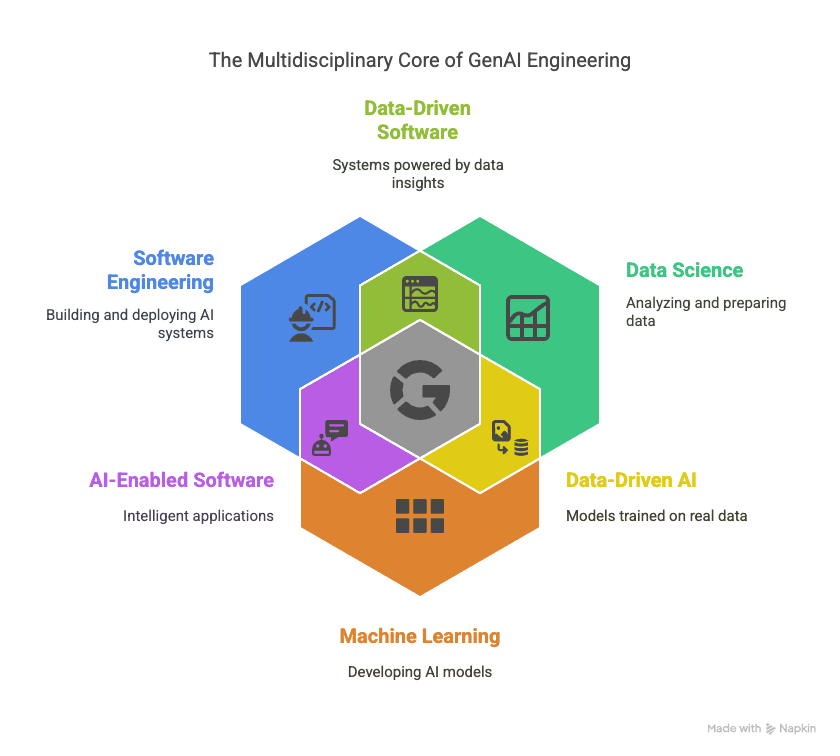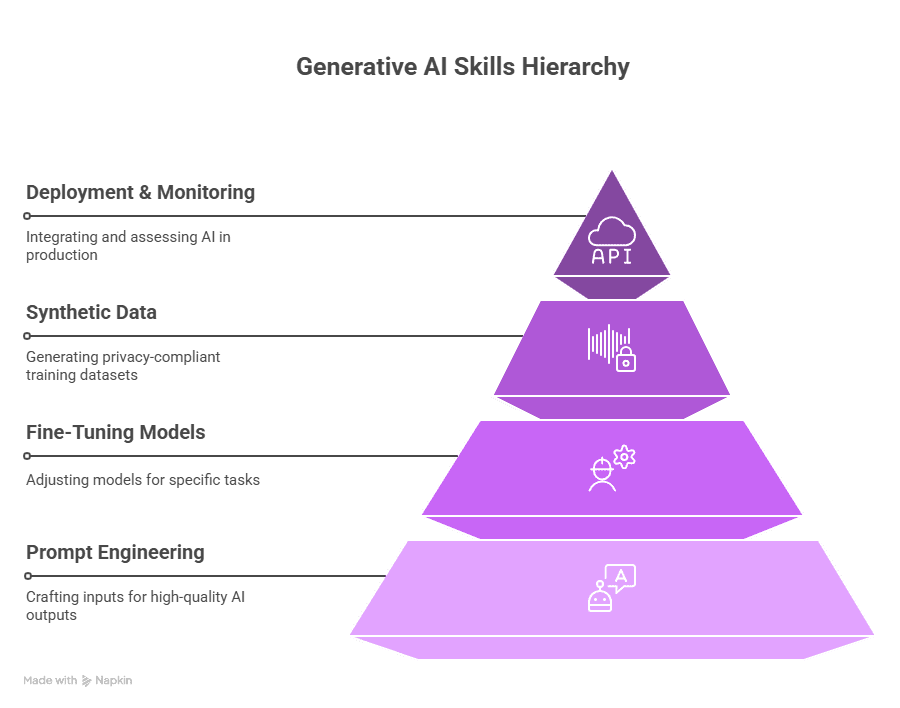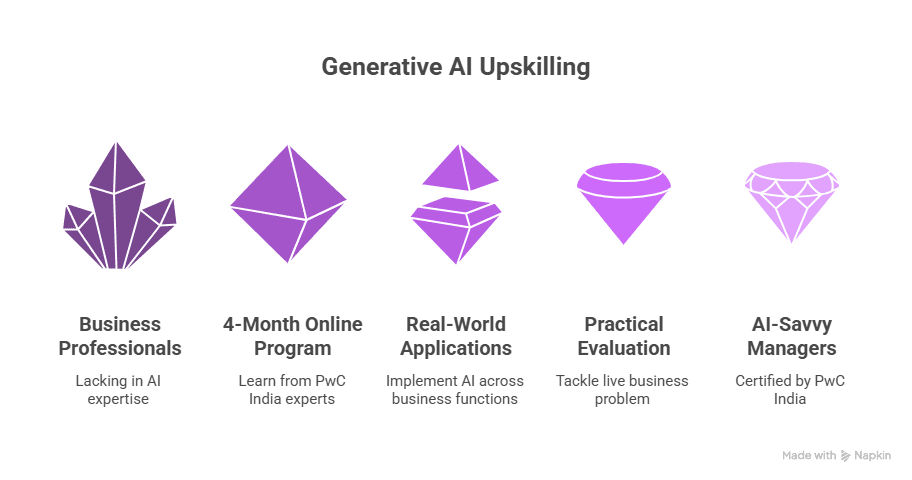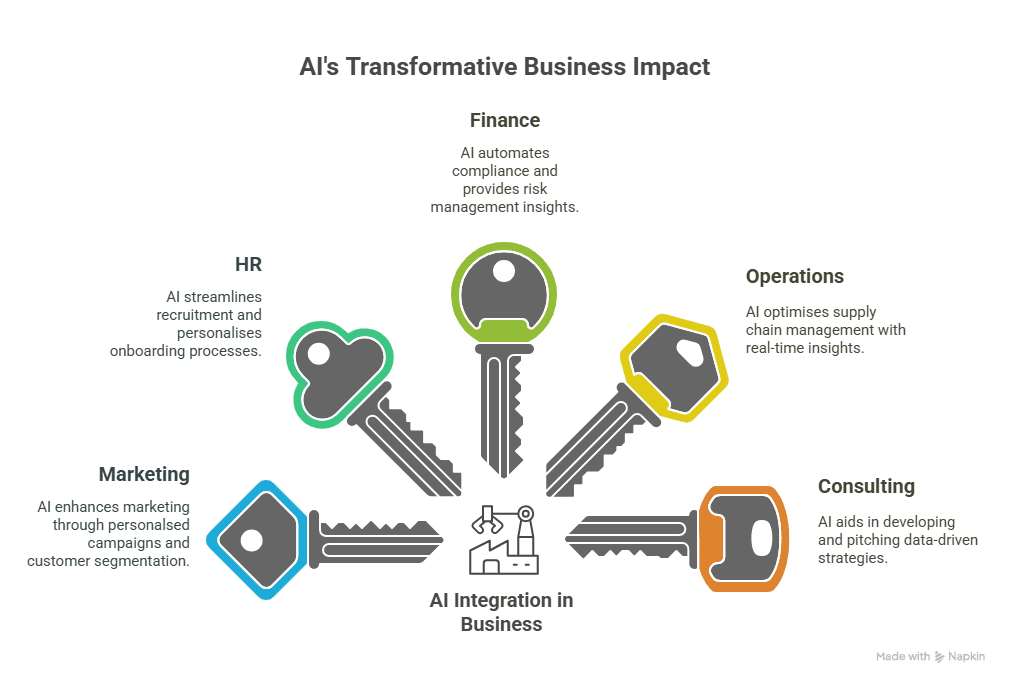Introduction
The workplace is changing and it is happening faster than anyone could have imagined. If you are a business leader or manager trying to figure out how to position your team moving forward, well the answer just might be in two little letters: AI. More specifically, Gen AI Concepts. These new tools are changing how teams create, collaborate, innovate & get work done. But remember.. the change isn’t just technology, it’s about people.
Assisting your team to transition to a generative AI solution isn’t just giving them a tool and hoping for the best. It is about giving the team the tools, skills, interactions, and support to engage with change with some thought and approach. In this guide we will break it all out clearly and practically, providing steps that all leaders – even non-technical leaders – can action right away.

Understanding the Need for Generative AI Training
Gen AI isn’t a passing trend—it’s a transformative force. In industries from finance to marketing, HR to operations, AI tools are now embedded in everyday workflows. Yet these tools, such as ChatGPT, Midjourney and GitHub Copilot proliferate, employees often don’t have the mental frame or context for how to use them meaningfully. To integrate Gen AI Concepts like prompt engineering, LLM applications, and synthetic content generation, we need to demystify them at scale. If you do not engage in systematic programs for learning, teams are likely to misuse tools and data by accident, or competitors could be inventing on that particular topic or corner, shrinking margins and unique value, or worse, you could working against data privacy and security principles. That said, a recent IBM study indicated that 70% of companies leveraging AI for work still did not feel their employees were ready. So before you invest in AI platforms, invest in your people first.
Generative AI Training for Employees: Laying the Foundation
The first step is to help employees establish a foundational understanding. Before getting into the details, teams should have an understanding of what Gen AI Concepts are, how Gen AI concepts are different from traditional AI, and why Gen AI concepts matter.
This means shifting the mindset from “AI will replace us” to “AI will assist us”. And that change starts with education.
Here’s how to build your AI learning base:
- Start with basic Gen AI Concepts—what is generative AI, what are LLMs, and how they function
- Use real-world business use cases tailored to your industry
- Offer cross-functional sessions so non-tech staff see relevance
- Encourage interactive learning through tools like ChatGPT and DALL·E
- Incorporate ethical use cases and bias mitigation in content
Why this works: It not only boosts confidence but also builds shared language and understanding across the organisation.
Upskilling Teams for AI Adoption: Practical Methods
Once your team is comfortable with core Gen AI Concepts, it’s time to build competence. This means shifting from theoretical understanding to practical skills. Think of it like teaching your team to drive—not just understand what a car is.
Methods to upskill effectively:
- Internal bootcamps run by your digital or L&D teams
- Microlearning modules using scenario-based training
- Tool-specific training (e.g., Prompt Engineering for ChatGPT, Generative Design with Adobe Firefly)
- Cross-functional hackathons to explore real-time AI solutions
- Shadowing and mentoring for peer-to-peer learning
- Certification-based programs with outcomes tied to roles
Consider enrolling your team in specialised programs like the Certificate in Gen AI by Imarticus Learning—designed to equip professionals with real-world, role-based AI fluency. Click here to explore the course.
AI Readiness for Business Leaders: Strategic Insights
While your teams execute, your leadership has to strategise. AI readiness isn’t just a technical milestone.. it’s a cultural and structural shift. Leaders need to speak the language of AI -while also translating it to business outcomes.
Two critical pillars to focus on:
- AI governance and security: Business leaders must define policies around the safe, compliant use of Gen AI tools. This includes data handling, model accuracy, and employee guidelines.
- Change enablement strategy: Managers should create momentum, not mandates. Communicate the why behind the AI shift, align it with business goals, and measure progress through engagement metrics.
According to McKinsey, companies that link AI strategy with business value see 2.4x more ROI from their transformation initiatives.
Implementing AI in the Workplace: Tools and Platforms
Now that you’ve trained your people and aligned your leaders, it’s time to introduce AI into the normal rhythm of work. But there are thousands of AI tools available, where do you even start?
Here is a step-by-step approach to Gen AI tool roll out.
1. Audit your existing workflows: Look for tasks that are manual or repetitive, and creative tasks that can be supported by AI.
2. Select tools for each particular role: For example a content team may want to find tools like Jasper or Copy.ai; a finance team may want to look for tools like Forecast or Pigment.
3. Train and test each respective tool: Identify champions within each group, trial each tool, and report back on the performance.
4. Ensure AI tools are reported within the same system: Make sure that your AI tools are reporting outputs to your CRM, ERP, or communications platform.
5. Track and measure: Use dashboards to be able to measure who is using the tools, their level of effeciency using each policy, and be able to measure your ROI.
Common Workplace AI Tools by Function
| Category | AI Tools |
| Content Creation | ChatGPT, Jasper, Copy.ai |
| Data Analysis | Tableau AI, Microsoft Fabric, Power BI with Copilot |
| Customer Service | Intercom Fin, Drift, Tidio |
| Productivity | Notion AI, GrammarlyGO, Otter.ai |
| Design | Adobe Firefly, Canva Magic Studio |
| Coding | GitHub Copilot, Tabnine |
Change Management with AI: Leading the Transition
No matter how good your tools are, people make the difference. And people need time, space, and support to adjust. That’s where change management with AI comes in.
It’s not enough to launch tools—you need to launch conversations, address fear, and celebrate small wins. Your people aren’t resisting AI—they’re resisting sudden, unsupported change.
Long-Term Support Strategies:
- Create an AI Champions Network across departments
- Host monthly AI Showcases where teams share what they’ve built
- Incentivise AI experiments with rewards or recognition
- Keep training continuous, not one-time
- Listen to feedback, and iterate accordingly
As Harvard Business Review notes, companies that build a feedback loop into their AI adoption strategy see 3x faster adaptation and higher morale.
Key Takeaways
- Gen AI Concepts are essential for modern business operations
- Structured training boosts confidence and reduces misuse
- Role-specific upskilling makes AI adoption smoother
- Business leaders must drive alignment through governance and vision
- AI tools should be introduced with integration and tracking in mind
- Change management ensures long-term adoption and people-first success
FAQs
1. What are Gen AI Concepts specifically?
Gen AI Concepts are overarching concepts like large language models (LLMs), natural language processing, AI-based content generation which is in the workings of a tool like ChatGPT or Midjourney.
2. How does generative AI differ from traditional AI?
Generative AI does not analyze data and predict outcomes, rather generative AIs produce new data including text, image, code or design. In other words, generative AI is very creative and generative AI is more flexible than traditional AIs.
3. How can I convince my team that AI won’t replace them?
Emphasise that Gen AI is a tool that enhances productivity, not a threat. Support this with upskilling opportunities and case studies of role augmentation.
4. Which departments derives most immediate benefits from Gen AI?
Content creation, marketing, human resources (HR), customer service and data analysis will hit go-live first if at all—but really every department can experience the benefits of idea generation and automation of simply getting things done.
5. How long does it take for AI training?
Depending on the role complexity, the foundational Gen AI training takes roughly 2-4 weeks, and learning the tools and becoming proficient may take continuous use closer to 3 months.
6. How do I start adopting AI in a small company?
Start with one pilot team, document what they learn, scale what worked, and celebrate initial successes as early wins. Be measure agile, and people-focused.
7. Are there risks of exposing the company to controversies if we use Gen AI at work?
Yes, especially around IP, data privacy, content authenticity, etc. Be diligent and use tools with enterprise grade security and follow your internal guidelines .
8. How do we measure ROI on AI upskilling?
Measuring ROI on upskilling using AI can be hard. Track metrics around time savings, quality of output, employee engagement and usage of tools to get about a complete picture of how it is impacting the business.
9. What soft skills support AI integration?
Critical thinking, adaptability, ethical reasoning & curiosity are as important as tech fluency when working with AI tools.
10. Can Gen AI help with leadership tasks too?
Absolutely. Leaders can use Gen AI for strategy simulations, speechwriting, report summaries, and even culture-building prompts.
Conclusion
Embracing generative AI is about preparing for, and contributing towards the smarter, more productive, future of work. If you’ve developed a strategy, have the right tools and most importantly, if you have a people-first learning and training strategy, your workforce is capable of thriving in the AI era.
Now is the time to kickstart Generative AI concepts in your teams across departments and apply hands-on learning. Make sure support is available at every stage of the transformation.
Ready to support even deeper AI capabilities in your team? Sign up for Imarticus Learning’s ‘Generative AI for Managers in Association with PwC Academy’ course – a practical, role-based course designed to prepare your team for the future of work.


